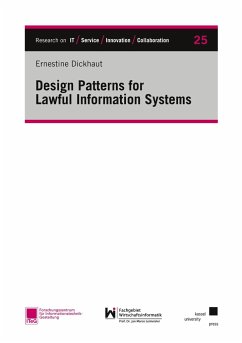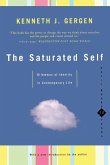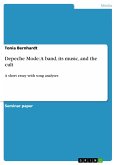The development of lawful systems is vital in today¿s world. Legal disputes and the advent of regulations pose challenges for developers. At the same time, the application of systems based on artificial intelligence (AI) has gained importance. AI-based systems represent new possibilities in areas such as everyday life and learning situations. However, these systems often lead to legal issues and burden developers with additional development challenges. Designing lawful but equally user-friendly AI-based systems requires consideration of legal requirements to avoid privacy concerns and violations. This dissertation adopts a design science research approach to develop legal design patterns that codify proven legal design knowledge. The dissertation demonstrates how the developed design patterns can be used by developers for the design of lawful AI-based systems, and at the same time support legal experts in making legal judgments. As such, it provides a foundation for codifying legal design knowledge.








